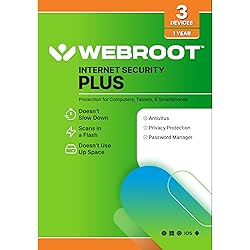How VPN Encryption Works: A Complete Guide
How VPN encryption works is a question many internet users are asking as the importance of privacy and security continues to grow. Encryption techniques are at the heart of Virtual Private Networks (VPNs), ensuring that your data remains confidential while traveling across potentially insecure networks, such as public Wi-Fi or even your own Internet Service Provider (ISP). In this article, we’ll take an in-depth look at the fundamental technologies behind VPN encryption, why it’s crucial for cybersecurity, and how it shields your sensitive data from prying eyes.
—
What Is VPN Encryption?
VPN encryption is a process in which your online traffic is encoded as it passes between your device and the VPN server. This means that any information you send or receive, such as website requests, emails, or downloads, is rendered unreadable to anyone without the decryption key. Encryption is what makes VPNs effective at securing communications and providing online privacy.
—
The Basic Principles of Data Encryption
Encryption aims to transform readable data (plaintext) into unreadable code (ciphertext). Only someone with the correct decryption key can reverse this process. There are two major types of encryption frequently used in VPN technology:
– Symmetric Encryption: The same key is used for both encryption and decryption processes.
– Asymmetric Encryption: Two keys are used—a public key to encrypt data and a private key to decrypt it.
A robust VPN utilizes both types together, often using asymmetric encryption to exchange symmetric keys securely during the initial connection or handshake.
—
How VPN Encryption Works: Step-by-Step
Understanding how VPN encryption works can help you appreciate its importance in cybersecurity. Here’s a simplified breakdown:
1. Establishing a Connection
When you connect to a VPN, your device establishes a secure tunnel with the VPN server. This process requires authentication and agreement on encryption methods or “protocols.”
2. Key Exchange
Using asymmetric encryption (often RSA or ECDH), your device and the VPN server trade keys safely, making sure only you and the server can read the data sent across the tunnel.
3. Symmetric Session Keys
Once keys are exchanged, symmetric encryption (like AES, Advanced Encryption Standard) is used to encrypt and decrypt all data efficiently during your VPN session.
4. Data Encryption and Transfer
Your internet traffic—including website requests, downloads, or uploads—is encrypted locally, sent through the VPN server, then decrypted so you can use the online services while hiding your original data from third parties.
—
VPN Encryption Protocols: What You Need to Know
Several protocols manage how VPN encryption works in practice. Each has its strengths and weaknesses:
– OpenVPN: Highly secure, open-source, and widely used. It supports various encryption standards and is difficult to compromise.
– IKEv2/IPSec: Popular for mobile devices due to its stability and quick reconnections, especially after network changes.
– WireGuard: Celebrated for its speed and modern cryptography, though its adoption is still rising.
– L2TP/IPSec and PPTP: Older protocols with known vulnerabilities. PPTP, in particular, is now considered insecure.
Most reputable VPN services allow you to choose from several encryption protocols depending on your security and speed requirements.
—
Why Is VPN Encryption Critical for Cyber Security?
Cybersecurity is more important than ever—cyber criminals, ISPs, and even governments aim to intercept and analyze your data. Here’s why VPN encryption is a must-have:
– Protects Sensitive Information: Passwords, billing details, emails, and browsing activities are shielded from hackers and eavesdroppers.
– Secures Public Wi-Fi: Using public Wi-Fi without encryption exposes your data to easy interception; VPNs make eavesdropping virtually impossible.
– Bypasses Censorship and Restrictions: Encrypted tunnels prevent deep packet inspection, allowing users to bypass government or organizational blocks.
– Confidentiality and Anonymity: Even your ISP cannot see the details of your web activity when it’s encrypted over a VPN.
—
Choosing a VPN Service With Strong Encryption
When considering a VPN service, focus on those that:
– Offer proven protocols (OpenVPN, IKEv2, WireGuard)
– Employ AES-256 or equivalent strong encryption standards
– Have a clear, audited no-logs policy
– Regularly update and patch security vulnerabilities
—
Conclusion
Understanding how VPN encryption works empowers you to make better choices about your online privacy and security. Whether you’re safeguarding sensitive business data or simply browsing on a café’s Wi-Fi, a well-chosen VPN ensures your digital footprint remains private and secure from cyber threats. Investing in a VPN with robust encryption isn’t just wise—it’s essential for effective cyber hygiene in today’s connected world.


